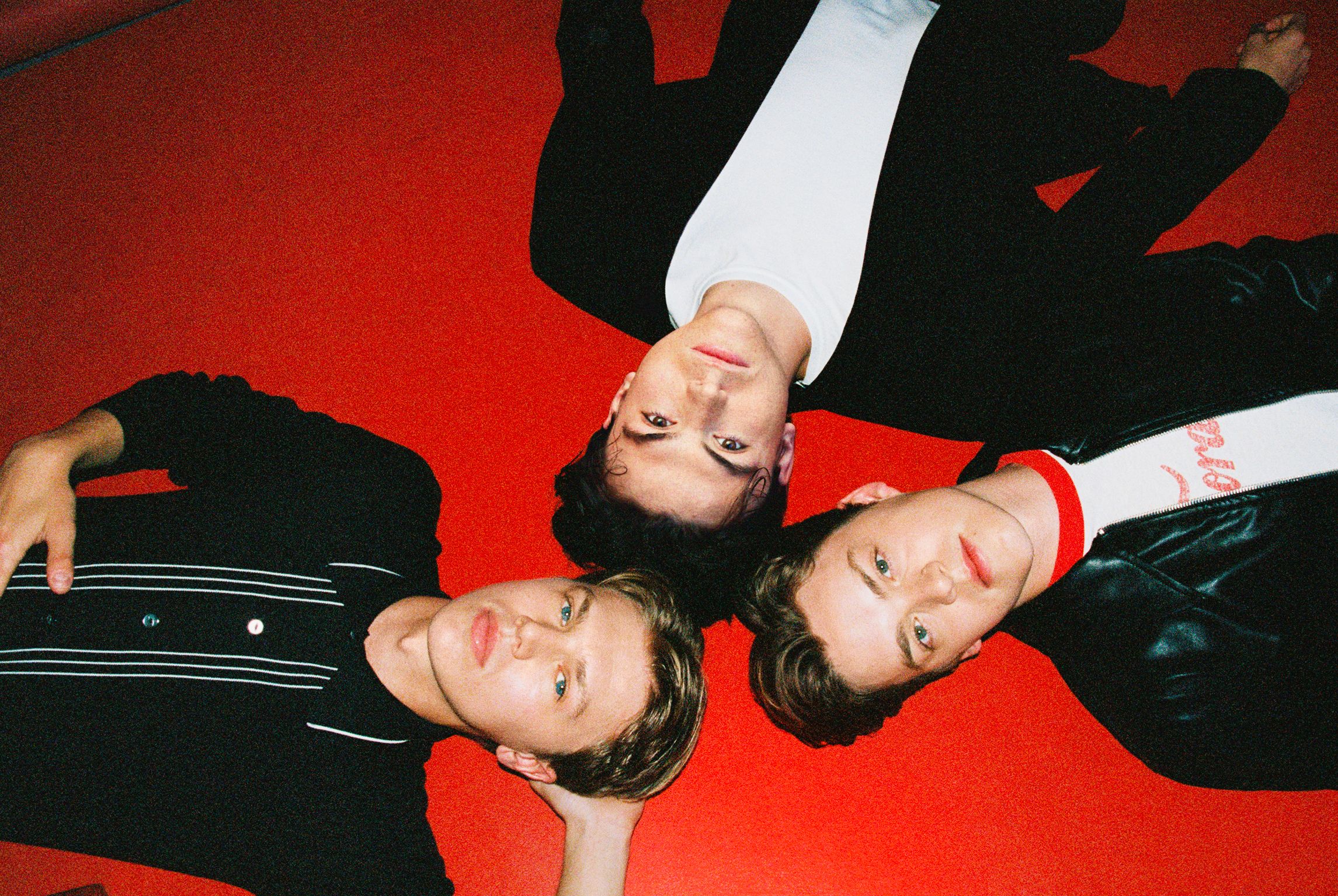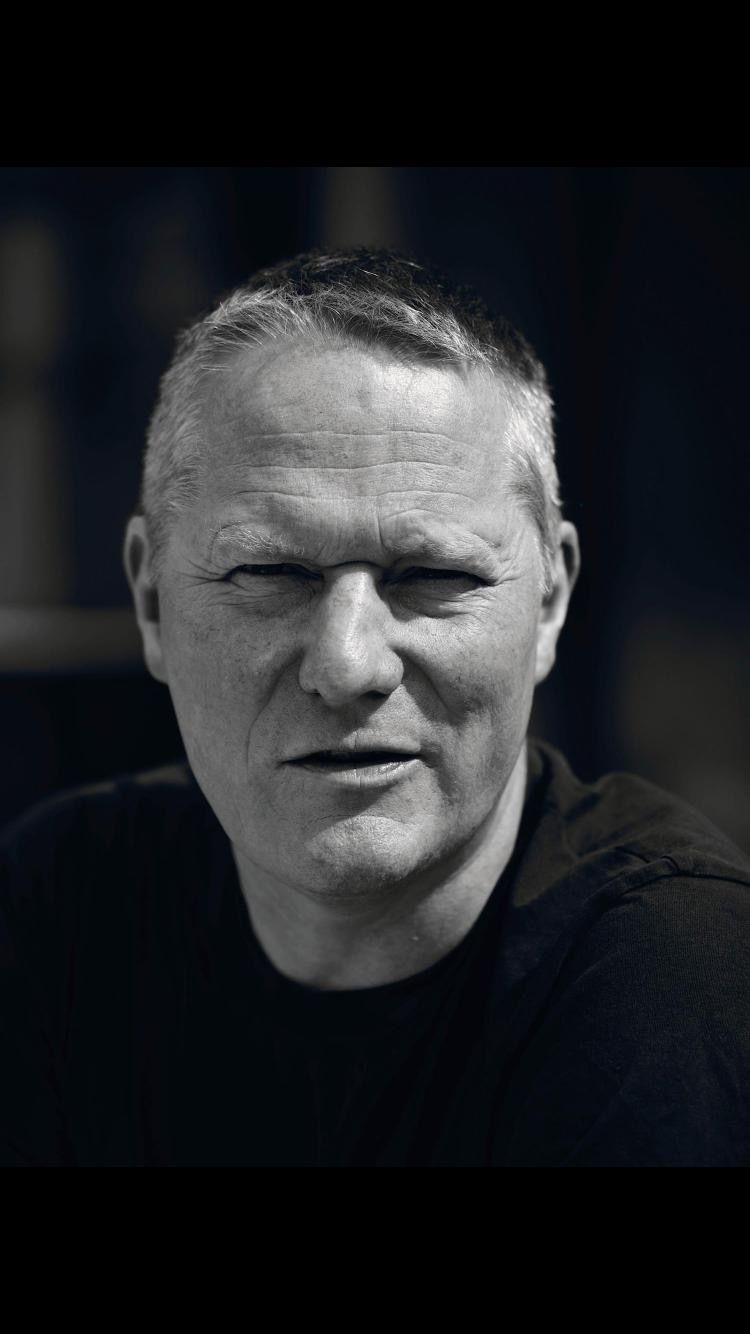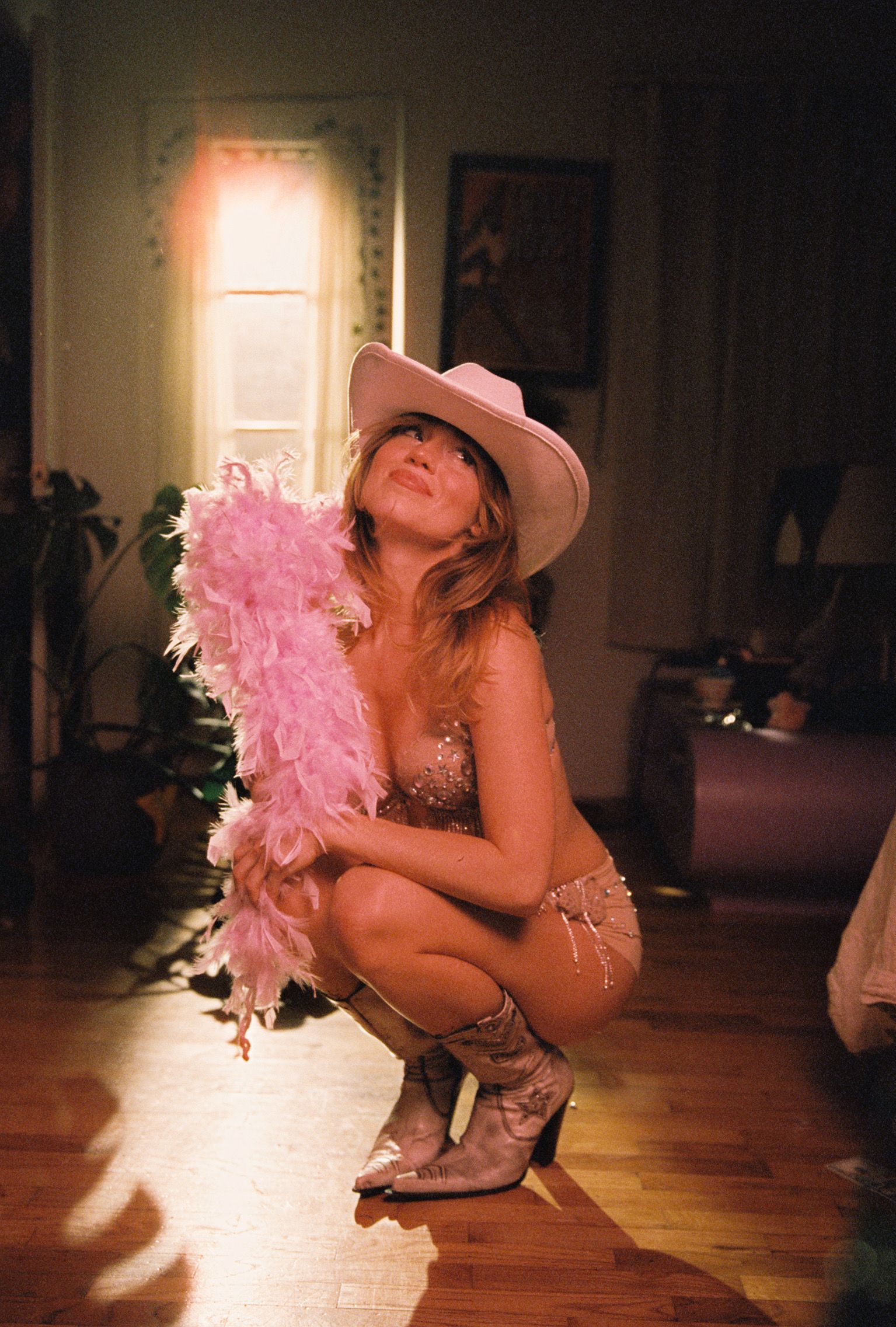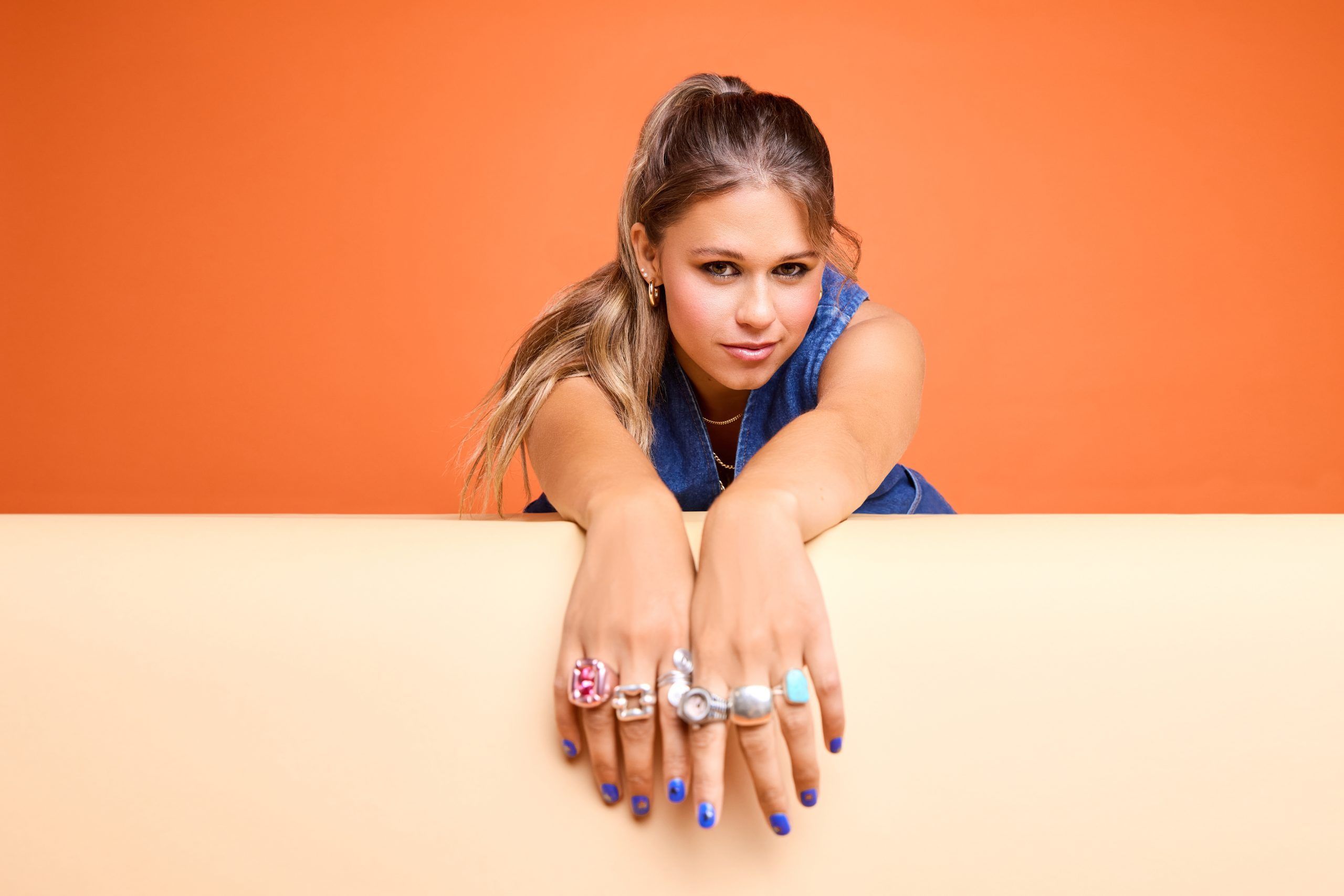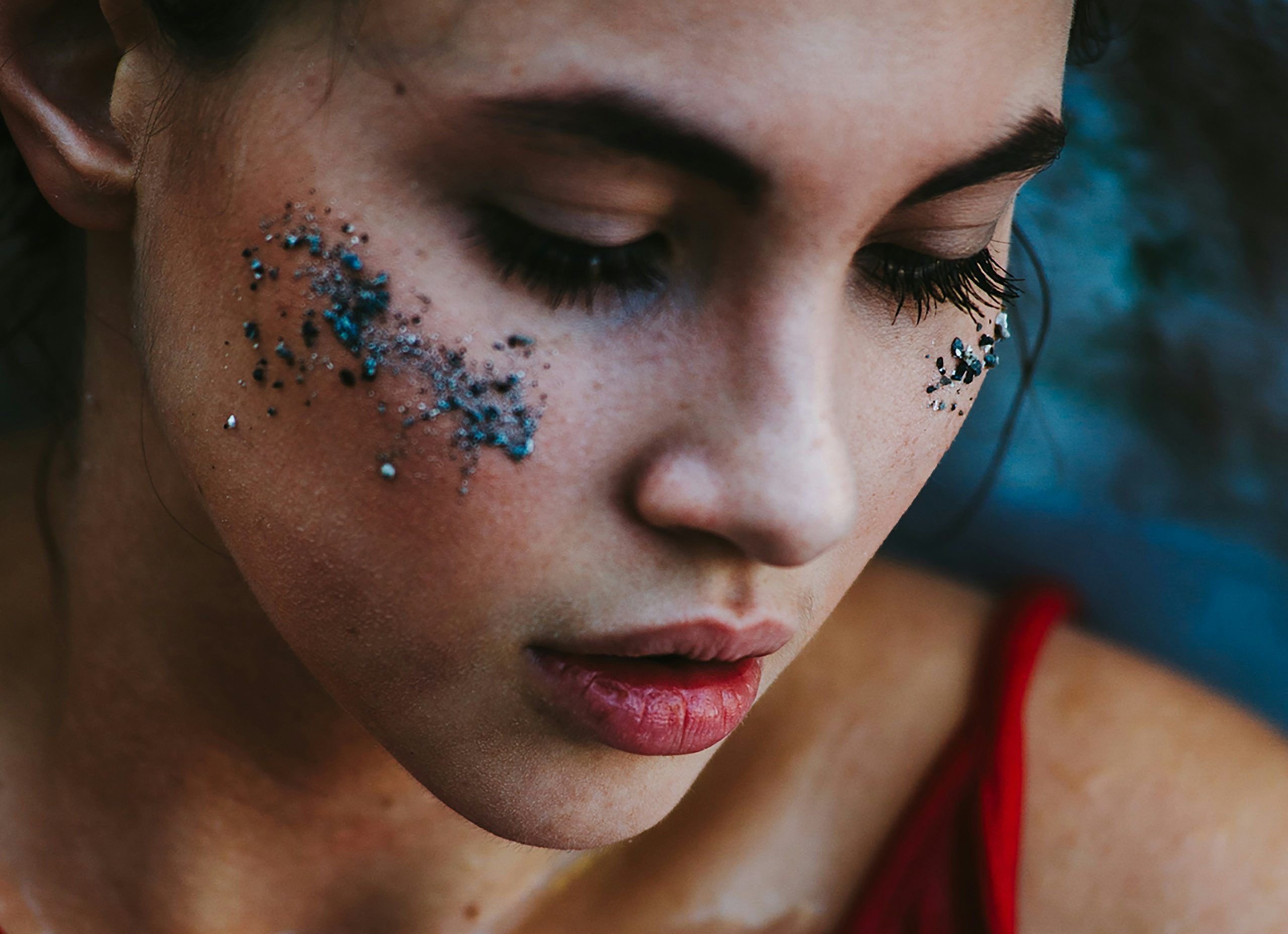After spending most of this year touring around the world–and headlining their first ever music festival in Seoul, South Korea–the boys from New Hope Club finally get to catch their breath for a minute.
As a three-piece, New Hope Club quite literally grew up together in the limelight. The pandemic, thus, warranted a surprised period of reflection and experiment for the band. Two years in the making, New Hope Club’s sophomore album is all about Blake, Reece and George and the the identities they’ve found and claimed since their last project. Moving onward the optimistic, liberating sound of ear-gripping pop melodies and classic rock-driven instrumentation from previous projects, New Hope Club is unveiling a new era one step at a time. Fans get to piece together the puzzle two singles at the time. The latest double-single, “Call Me A Quitter” and “Whatever” reminisce of summer sunshine and 60s glam rock, give just a taste of what New Hope Club has got in store.
While Blake Richardson, Reece Bibby and George Smith felt beyond eager to be back on the road again after the lockdown, they are amping up to release more singles for their upcoming album. 1883 Magazine caught up with the boys on tour life, new album and some fond moments down the memory lane.
Hello, how are we doing today?
George: We’re doing good! We just came off of a long three month tour, switching back to being in England for a couple more days. We’re just relaxing, seeing family members we haven’t seen for so long, going back to normal life post-tour, just taking it all in with how much fun we had from being around and seeing all the fans again for the first time in so long.
What have you been up to between releasing a double single and going on tour?
Blake: Well, we did an acoustic run around the UK, some acoustic shows in Europe. Then we headed to America and did 12 shows, which is crazy. We then went to Asia, headlined our first ever festival–there were 10,000 people I think? It was very surreal. We went all around Asia. Indonesia, Thailand, Vietnam, Singapore, Malaysia, Philippines… Everywhere, all over.
How was the experience headlining a festival for the first time?
Reece: It was amazing as we’ve never had an experience like that before, I think it’s probably our favourite show I’ve played. It was just wild. We had a bit of impostor syndrome, like, should we even be headlining festivals yet? It’s insane. But the crowd was so excited for us. There were so many people who turned up to watch us and sang every word of every song. We did not expect it at all. Very lucky that we can play a show like that.
I think I listened to a few tracks from your first EP when it first came out in 2017. I had no clue how young you guys were at the time, which also means it’s been a while since you guys been in a band together. A lot has happened. Was there ever a time when it felt a little bit difficult to stay as a three piece?
B: No. I mean, we’ve always wanted to be in bands growing up. Obviously, before the band, we were all on our own doing little gigs and performing. The thing is we always wanted to be in a band and have that relationship and that brotherhood. And having the opportunity to go through so many things together and share that experience is so nice. I know it’s classic to say that your bandmates are like brothers, but we’ve grown up together since 15, shared hotel rooms with three beds and no windows. Genuinely, we know each other so well. The idea of doing this without each other is crazy.
But we definitely had a moment when lockdown hit. Everyone had a moment of reflection. I think for us, we were so proud of our album going top five in the UK, and we’ve done a world tour the year before COVID hit, which was so amazing. We’ve always been inspired by bands and artists that write their own music, have their own identity and have their own message that they want out to the world, and I think one thing that we felt was that we didn’t necessarily have that identity. We were growing up, writing with all these different people around the UK, the US, we were never really given the freedom to show who we wanted to be as a band.
I think we had that moment of reflection of, Well, if we’re not going to be able to have a message and put that out to the world, I don’t know if we want to do this. We want to make sure that for this band, we’re the face of it at the end of the day. We want to be releasing the music that we’ve written, and when we’re playing to crowds they are singing the lyrics that we wrote. It’s been really special to spend two years writing this project. We’ve been so hands-on with this album and all these new singles, from artworks, music videos, and obviously the production and the writing. To have that control and to put out our message is so exciting.
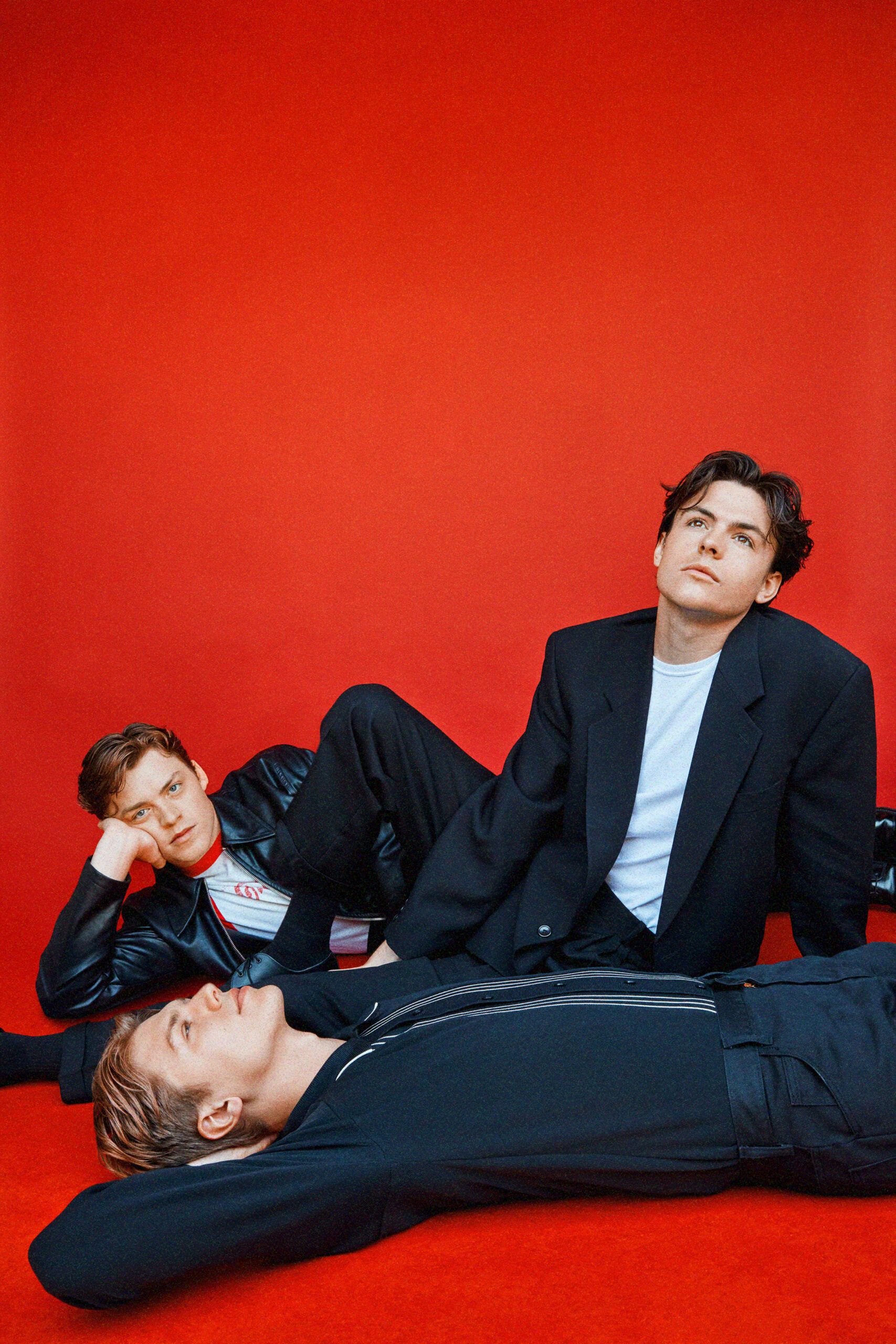
What was it like to release your debut album, which is so well put together, and as you mentioned, really captured identity–but then the pandemic hit and you never really get to like do the whole touring cycle for it. How did you guys handle that situation?
G: It came out at a strange time, obviously. We couldn’t really go around the world and play it, which is what you would normally do post-releasing an album. Obviously, it was our first ever album, we are very proud of it. But there were definitely points from that album we can also improve upon, like push ourselves and focus on the writing side of it, and really put out an album and a message that we truly believe in fully from start to finish. Not that we didn’t with the first album, but we just felt like we could portray it in a better way and in a more authentic way, which has led us to reflect in the process that we made New Hope Club and how we want to make this new one. We’ve kind of got back to our roots of really having fun when making the new album. We all started writing music for fun, it was never really a job. So it’s been a focal point for us for this new album to just go into the studio jamming, having fun, messing about and really seeing what comes of it.
And I think the new music really gives you an in-depth look at how we were feeling when we wrote it and sonically, what New Hope Club truly is, what we want to be in the future and where we can take the music. You can definitely see an arc from the start, like from the first EP into the first album and then even this one. It just feels like a whole new New Hope Club, because it’s fully us. We are the people that we’ve become over the last two years. Being able to have the creative control and freedom for us to do this has been amazing. It’s been such a lesson for us. We wouldn’t ever change anything that we’ve done in the past for sure, because it all led up to this point. It’s very exciting time for us, individually and collectively, with all the songs that mean so much to us, for them to be coming out over the next couple of months and for people to gradually hear them.
I definitely want to ask about the last two singles that just came out. Particularly, I really like Call Me a Quitter. I love the music video. Overall, the whole song felt very 60s rock, a little bit of The Beach Boys, a little bit The Beatles, and also New Hope Club all together. Were there any other inspirations that I didn’t mention that you want to bring up?
R: God, even mentioning our names with them!
G: But influence wise, there’s Vampire Weekend. Father of the Bride is one of the best albums of the last 10 years. We draw from a lot of different influences, 60s rock obviously became a huge inspiration, with The Beatles and everything. I’d say New Hope Club sounds like a big melting pot, we just throw all these different influences in it, and then it boils down to what you finally hear at the end of the day. We also try not to restrict ourselves because we’ve had so much time to experiment and try loads of different things. We don’t want to restrict ourselves to write a certain type of song, but instead let the song take us wherever it should be.
Why are you guys called New Hope Club in the first place?
R: We always like the idea of “Club” because it feels inclusive, and the fans have been a very big part of what we’ve done from the very start. We started by releasing covers and their support online was instant. We’d like to say that they are part of the club, part of the band and part of the movement. And “New Hope” sounds positive. Now more than ever, positivity is needed. And it just sounds like a club that I’d want to be a part of.
B: And you have to know the password.
What’s the password?
B: I dunno… The password is “password,” no capital.
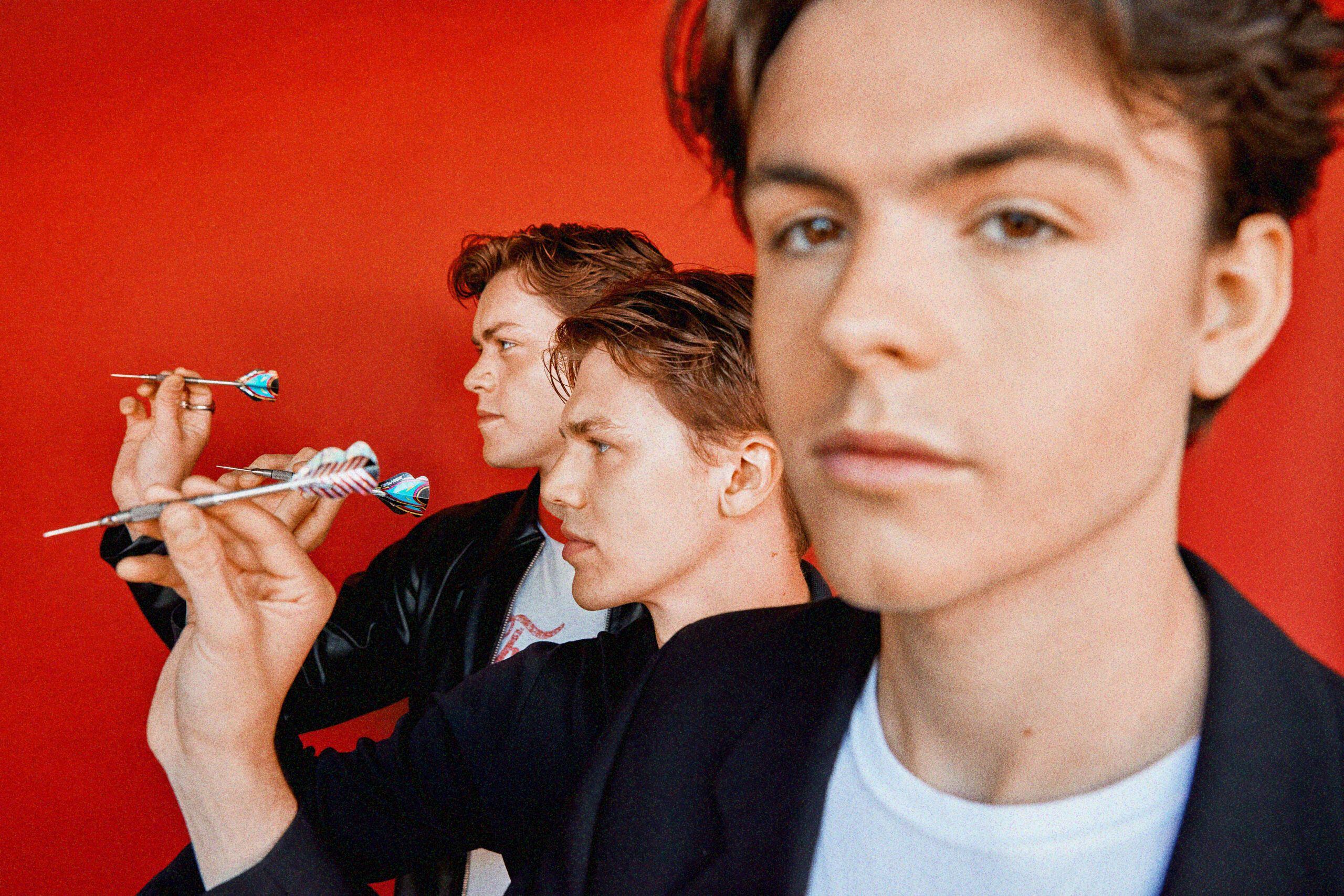
It’s been more than three years since we last interviewed you guys, obviously, a lot has changed. Does having a bigger fan base now change the way you see yourself as musicians?
R: No, I don’t. To be honest, we’re always setting goals for ourselves, and these past two years we’ve just been so focused on working on the music. We’re so grateful for any support that we have, and it’s amazing that we’re still growing. We feel like we’re only just scratching the surface of what we want to achieve, and yeah, we don’t really want to set ourselves a limit. We don’t really want to stand still and say we’re happy, because we’ll never be happy. We want more. We want to be the biggest band in the world. We’re going to make music that we love and hopefully the rest of the world loves it too.
How do you tune yourself back from the mindset of “I’ve just been all over the place in the world and suddenly I’m home again?” What’s that transition like?
R: It’s important to choose the people you surround yourself with. We’re all from very humble small towns. I think you don’t really have a choice when you go back. I think just doing everyday stuff helps with getting back to normality, because obviously when we’re on tour, you’re not doing normal everyday stuff. It’s a bit of a transition, but it’s pretty smooth when we get back, it’s like we never left honestly.
G: It’s the home cooked meals for me. When we are away we don’t really ever get a chance to cook, so it’s whenever your parents make you a Sunday roast or something.
While we’re on the topic of home, I want to ask who are some of your musical idols growing up, also, what were some music that were playing in the house?
B: All of our families are very into just all kinds of music, a lot of older music, like music from the 70s, 90s and the 60s.
G: And the 50s (laughs).
B: We always say The Beatles are our No.1 inspiration, cliché as that may sound. They’re obviously the goat of music, and why not look up to the best of the best? And then obviously, Oasis, The Stone Roses–they are all from near Manchester. I don’t know, so many bands…
G: The Eagles! Bee Gees!
B: We are definitely most inspired by people that tried to be individuals, push boundaries and experiment, develop where music is going. It’s very easy to go along with what’s going on in the current time, and even back in the day, I’m sure there was a sound; but it’s those people that tried to push and said “Let’s try and take it somewhere else.” I feel like it’s not as common these days. At the end of the day, pop music is popular music, it’s not like it’s got a sound, it’s whatever people are into.
Before I start asking you guys about what you envision your music will become, I want to ask Blake: you have the chance to play sir. Paul McCartney in an upcoming biopic for Brian Epstein, which is pretty cool. What’s that experience like?
B: Well, I have not filmed it yet, we are filming it in November, but I’ve done a lot of the rehearsals and it’s obviously a huge honor. Like we were saying, we are Beatles Mads, so to be given this opportunity, it’s a lot of pressure, quite scary, but obviously very exciting. It’s my acting debut, so hopefully I do okay. I’ll be nervous for the boys watching it, but I’ll try my best.
G: I might scream every time you come on screen.
What are some adjectives that you can come up with to describe some songs that are coming out next?
B: Adjectives? If you describe the album, it’s happy–
R: It’s happy and good, the whole thing is very positive.
B: And the message that we were talking about before, about having a message for the band, especially in this project, is just loving each other. Being aware of everyone around you and seeing each other, just spreading positivity. We’ve all been through COVID, and a lot of darkness that goes on around. I think music can often be quite negative about relationships. We’ve tried to put a spin on most of the things we write, just try and put a positive outlook out there, so people can feel like when they listen to music, it’s an escape, something to get them through and sending message around the world that life is good. This is the Okay. Have a good time.
Call Me a Quitter is out now.
Interview Gomi Zhou

